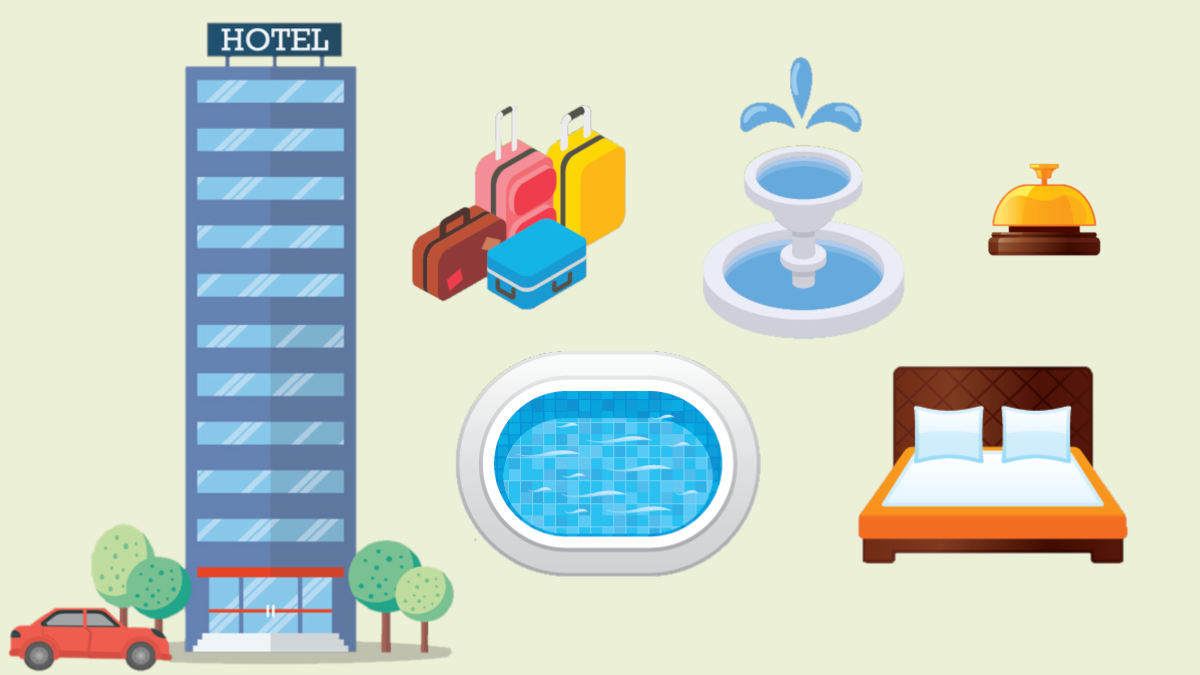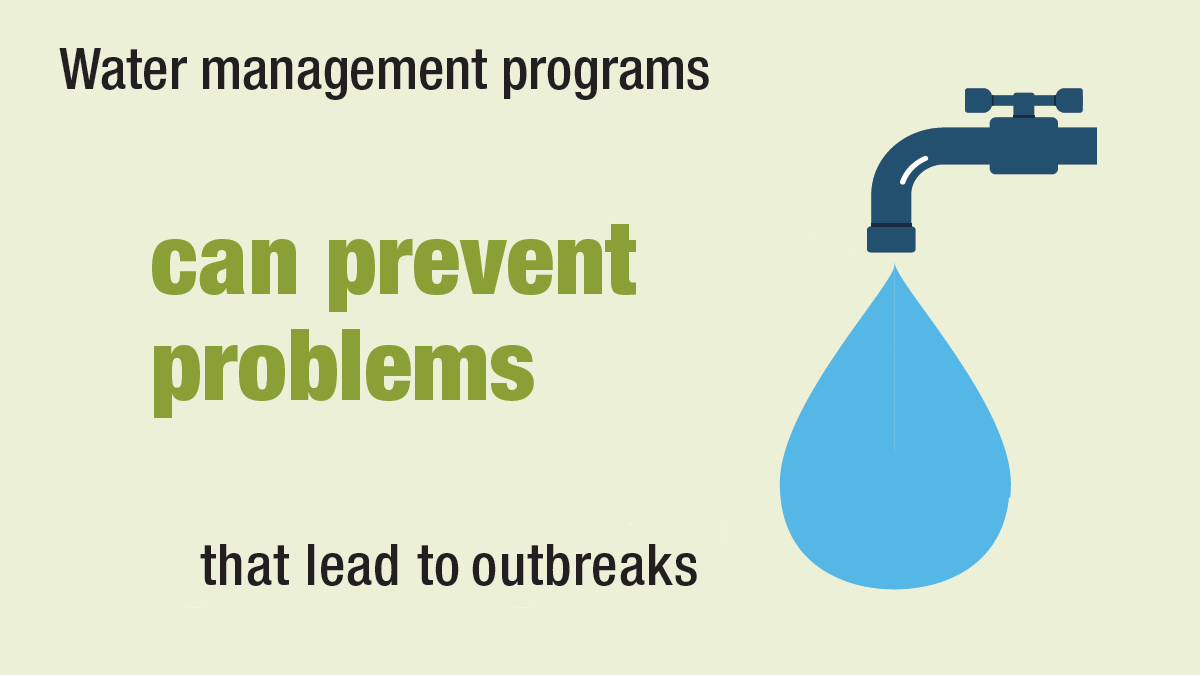Key points
- Legionnaires' disease is a serious type of pneumonia (lung infection) caused by Legionella bacteria.
- It can be associated with hotels and resorts, and may be deadly and costly.
- Prevention keeps guests and employees healthy — it makes good business sense, too!

Making a splash with safe water
First priority: Guest and employee safety
Legionnaires' disease is deadly for approximately 1 in 10 people who get it.
Outbreaks at hotels and resorts may interrupt services. This can diminish the guest experience and lead to considerable financial and reputational costs.
Guidance available on water management programs

The problems that lead to Legionnaires' disease are preventable through water management programs (WMPs).
A WMP is a multi-step, continuous process designed to
- Identify areas in a building where Legionella could grow and spread
- Reduce risk by managing and monitoring the water system
- Trigger action when risks are identified
WMPs are now an industry standard for most hotels and tourist accommodations in the United States.
Legionella growth and spread in hotels and resorts
Legionella can make people sick when the bacteria grow in water and spread in droplets small enough for people to inhale. Legionella grows best in warm water that isn't moving or that doesn't have enough disinfectant to kill the bacteria.
Cooling towers
When disinfectant levels are low or the system isn't being properly maintained, cooling tower fans can spray water containing Legionella.
Showers
Legionella can grow in and spread through showerheads. This can happen if a building's water has low disinfectant levels or hot water isn't stored at an appropriate temperature.
Unoccupied floors or rooms
Low occupancy decreases water flow, which can decrease disinfectant levels and hot water temperature and increase the risk of Legionella growth.
Hot tubs
Warm temperatures support growth of Legionella, which can spread through water jets if hot tubs aren't well maintained with continuous disinfectant.
Water supply interruptions
Events that interrupt the delivery of municipal water can allow dirt to enter the system and use up disinfectant. Nearby construction is an example of events that can interrupt water supply.
Decorative fountains
Legionella can grow in warm areas of a fountain and splashing can spread water containing Legionella.
